
Patricia de Lille
Leader Independent Democrats
Tel: +27 21 403 8696
www.id.org.za
Patricia de Lille has been prominent in South African politics for over two decades. She is well known for her passion on the topic of the multi-billion-rand arms deal, her strong disapproval of corruption in government, and her fearlessness in challenging the powerful. She began in the trade union movement, serving as national vice-chair of the National Council of Trade Unions.
A member of the Pan Africanist Congress, in 1990 she was elected on to the party’s national executive but broke away in March 2003 and formed the Independent Democrats. The new ID won seats in Parliament and in the Western Cape legislature in its first time out. There has been some dissatisfaction regarding her leadership from disgrunted former ID members, who have charged that she runs the party in a ‘dictatorial and undemocratic” manner, in direct contrast with her image of transparency and accountability.
She has not had an easy life, and has made a point of coming to the aid of the most vulnerable South Africans — women, children, people living with HIV. In one extraordinary case, she successfully approached the courts to improve the conditions of juveniles detained in appalling, overcrowded conditions at Pollsmoor Prison, even though one of the youths in question had murdered her sister.
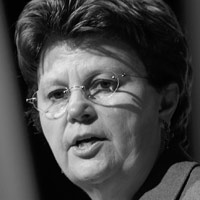
Barbara Hogan
Minister of Public Enterprises
Tel: +27 12 431 1000
www.dpe.gov.za
Barbara Hogan was making a good start as minister of health when she was shifted to public enterprises only eight months later.
She qualified in development studies at the University of the Witwatersrand while playing an active role in anti-apartheid activities and joined the ANC in 1976 after the Soweto uprising. In 1983 she became the first woman in South Africa to be found guilty of treason. She studied economics and accounting science in jail and was released in 1990, a week after the ANC was unbanned.
In 1993 she was appointed to the Development Bank of Southern Africa as part of a team looking at policy development in relation to public works. Hogan’s managerial and finance skills should serve her well as public enterprises minister; she has the reputation of being tough and in command of her brief. However she also has a propensity for irritating ANC leaders. Speaking out against the government’s refusal to grant the Dalai Lama a visa didn’t endear her to Luthuli House, and in her new post, hinting it might be time to stop baling out unviable state-owned assets earned her a blast from headquarters.
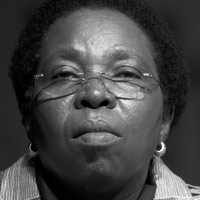
Nkosazana Dlamini-Zuma
Minister of Home Affairs
Tel: +27 (012) 810 8941
www.dha.gov.za
Nkosazana Dlamini-Zuma is one of the most successful but least popular women in South African politics. Her aggressive, no-nonsense personality and tough management style haven’t gained her many bosom buddies in government — but those qualities may be just what the doctor ordered in her new post, where she must sort out a department rife with corruption and incompetence. Dlamini-Zuma, a medical doctor, addressed the medical needs of ANC cadres in exile in Swaziland and Zambia while also developing post-apartheid health policy.
While working in Mbabane Hospital, she met Jacob Zuma, whom she married in 1982 and divorced in 1997. After a term as health minister, she served as minister of foreign affairs, focusing on improving relations with the international and African community. Her support for the policy of soft diplomacy on Zimbabwe was controversial, as were positions South Africa took at the United Nations, siding with repressive regimes. South Africa’s refusal to grant the Dalai Lama a visa in March 2009 was reportedly her decision.
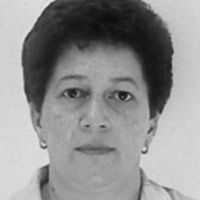
Hazel Jenkins
Premier Northern Cape Provincial Government
Tel: +27 53 838 2943/2944
www.northern-cape.gov.za
Hazel Jenkins leads a province that was the worst affected by the emergence of the ANC’s breakaway party, Congress of the People, which became the Northern Cape’s official opposition with 16% of the vote. Her rise to political stardom began with student politics in the Western Cape Student Organisation. She was an active member in the liberation struggle and played a prominent role in advocating women’s development in the communities where she lived, using the church as a platform. Jenkins became a teacher before changing the focus of her career to politics.
She is a founder member of the South African Local Government Association (Salga), a body that seeks to ensure development and the democratisation of local government. She now serves as Salga’s deputy chairperson. Prior to being appointed premier in 2009, Jenkins was the mayor of the Pixley Ka Seme municipality, situated near De Aar.
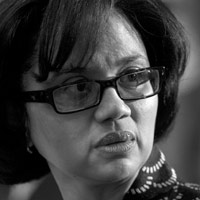
Tina Joemat-Pettersson
Minister of Agriculture, Forestry and Fisheries
Tel: +27 12 319 6000
www.daff.gov.za
Tina Joemat-Pettersson has a fair amount of experience in agriculture; she has spent the last five years as Northern Cape MEC for agriculture and land reform. It is an interesting portfolio for a former Free State University English lecturer. Born in Kimberley, she holds an honours degree in English and an HDipEd from the University of the Western Cape and served as tutor, teacher and research assistant until her lecturing post. In 1994 she began a term as Northern Cape MEC for education, arts and culture.
She has reached out to white farmers in her new portfolio, stating that ‘There are historically advantaged commercial farmers who have the knowledge and who have the know-how. There is goodwill; they want to help. It is tapping into that goodwill that is important. ‘ She told the National Assembly in June that government would not work with farmers who were ‘condescending, patronising and racist” but would work with those who believed their collective future lay in South Africa.
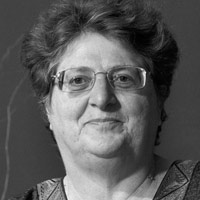
Gill Marcus
Governor-Designate South African Reserve Bank
Visiting Professor Gordon Institute of Business Science
Tel: +27 11 771 4000
www.gibs.co.za
Gill Marcus was named governor of the Reserve Bank, where she spent five years as deputy governor, in late July and will take office in November. Marcus resigned from her post as non-executive chairperson of the Absa Group the day after her appointment was announced. A former professor of policy, leadership and gender studies at the Gordon Institute of Business Science, she is currently a visiting professor. Her background includes three years as deputy minister of finance and service on a number of regulatory and supervisory bodies, including the Financial Services Board.
She is a non-executive director of Goldfields Ltd and executive chairperson of mining group Western Areas, serves on the Auditor General’s advisory board and was appointed this year as chairperson of the Rhodes Scholarship Fund. Marcus spent her exile in the United Kingdom before returning to South Africa in 1990. She established her own, highly respected voice in the ANC and was elected chairperson of the parliamentary joint finance committee before her posting to the finance ministry.
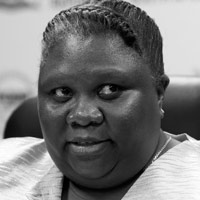
Noxolo Kiviet
Premier Eastern Cape Provincial Government
Tel: +27 40 609 6454
www.ecprov.gov.za
Noxolo Kiviet has got her work cut out, as the Eastern Cape is one of the most poverty-stricken provinces in the country. Her background as a former unionist will however come in handy with dealing with the working class. The former speaker of the provincial legislature is faced with challenges such as rooting out corruption and accelerating service delivery in a province whose image has been negatively affected by one corruption scandal after the other since 1994. Kiviet was born in the dusty village of Mdantsane in the Eastern Cape.
She began her political career as a shop steward for the Chemical Workers Industrial Union in the early 1990s. Described as a credible administrator, she holds an honours degree in public administration from the University of Fort Hare and served as a provincial treasurer for the ANC and for the labour federation Congress of South African Trade Unions between 1993 and 1996.
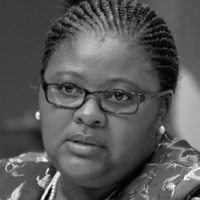
Nosiviwe Mapisa-Nqakula
Minister of Correctional Services
Tel: +27 12 307 2000
www.dcs.gov.za
A miracle might be required to sort out the mess at the Home Affairs Department. Certainly during Nosiviwe Mapisa-Nqakula’s tenure as minister from 2004 there was no improvement. It was during her watch that the British government insisted on visas for South Africans travelling to the United Kingdom because of the abuse of South African passports by non-South Africans.
She’s now been redeployed to another troubled portfolio, to deal with overcrowded prisons and rampant corruption. Mapisa-Nqakula, a trained teacher, underwent military training with Umkhonto weSizwe in both Angola and the Soviet Union in the 1980s. She returned to South Africa in 1990 and rose to powerful positions in the ANC Women’s League. Selected as an ANC MP in 1994, she was appointed chief whip after Tony Yengeni’s resignation.
She was implicated in the Travelgate scam, in which politicians cashed in their official travel vouchers or used them for purposes other than government business, but that did not interrupt her career; she was appointed deputy home affairs minister in 2002 to replace her husband, who moved on to safety and security.
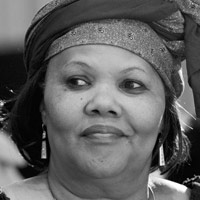
Noluthando Mayende-Sibiya
Minister of Women, Youth, Children, and People with Disabilities
Tel: +27 12 300 5575
www.thepresidency.gov.za
Noluthando Mayende-Sibiya’s fearless and independent approach to issues has earned her respect among her colleagues. The former president of the National Education Health and Allied Workers Union (Nehawu) is popular within the ANC-led tripartite alliance. She has been described as a calm but strong leader who is passionate about women’s issues and the fight against HIV-Aids.
A nurse by profession, in 2004 Mayende-Sibiya was elected Nehawu’s first woman president in the organisation’s history. She joined Nehawu while a trainee nurse at Prince Mashiyeni Hospital in KwaZulu-Natal. Mayende-Sibiya spent some years in Swaziland, where her activist parents were forced into exile. In the mid-1980s she was actively involved in the United Democratic Front. She is an executive member of the ANC and the South African Communist Party.
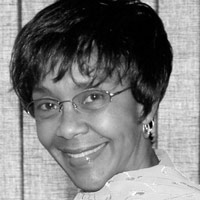
Maureen Modiselle
Premier North West Provincial Government
Tel: +27 18 387 3456
www.nwpg.gov.za
The woman at the helm of one of South Africa’s poverty-stricken provinces, Maureen Modiselle is an experienced leader in the North West provincial government. She served as an MEC in three portfolios: safety and liaison, economic development and tourism as well as finance. Modiselle has been on the ruling ANC’s provincial executive committee since 1994 and managed the finances as the treasurer for both the party and its Women’s League.
This passionate gender activist who leads a team of 10 MECs, half of them women, is still actively involved in politics at branch level, where she started her political career as a councillor in Mafikeng. A former nurse, she holds two degrees: a BA in health administration and a BA in nursing, both from the University of Toronto, Canada. Modiselle was born in Vryheid, KwaZulu-Natal, and settled in Mafikeng in 1990, when she returned from exile in North America and Canada.
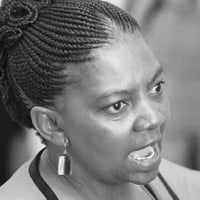
Nomaindia Mfeketo
Deputy Speaker National Assembly
Tel: +27 21 403 2911
www.parliament.gov.za
Nomaindia Mfeketo spent several years as Cape Town mayor; her term was broken when the Democratic Alliance won the city in 2000, but restored after floor-crossing gave the city back to the ANC. Her term as executive mayor of the metro was highly controversial. There were riots over non-delivery, complaints about a gravy train for her top managers and accusations of dodgy tenders handed out to companies owned by ANC officials.
There was also the Big Bay seaside development in Bloubergstrand, in which the city sold prime land at discounted prices to hand-picked companies with strong ANC links. The sale was handled so badly that it had to be scrapped. Mfeketo’s involvement in politics came largely via the Development Action Group, a housing NGO. She entered local politics in the early 1990s and in 1996 was elected chairman of the Cape Town council, becoming mayor two years later. She was named deputy speaker of the National Assembly in May 2009.
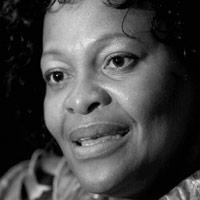
Nomvula Mokonyane
Premier Gauteng Provincial Government
Tel: +27 11 355 6000
www.gautengonline.gov.za
Nomvula Mokonyane talks tough, a new experience in a province headed by a succession of, by and large, smooth-talking men. In her inaugural address she slagged off everyone from labour brokers and ‘civil servants who value their tea time more than service” to hospital workers who steal linen and teachers who disrupt schooling to attend to their own affairs. Before her surprise appointment as premier, Mokonyane had served as MEC for safety and liaison and then as housing MEC.
Her performance in these posts was average, but her energy, vibrancy and streetwise manner were important to both ANC and provincial officials on community visits. Mokonyane was a founder member of the Congress of South African Students in Kagiso, joined the Federation of Transvaal Women and ascended to the central committee of the South African Communist Party. She has received training in local government and planning management and community development in Sweden, a certificate course in emerging economics with the Wharton Business School at Pennsylvania University and leadership and governance at Harvard University, both in the United States.
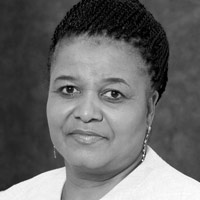
Edna Molewa
Minister of Social Development
Tel: +27 12 312 7500
www.dsd.gov.za
The former premier of the North West, Edna Molewa is a soft-spoken gender activist and co-founder of the Federation of Transvaal Women. She was a teacher in rural Makaunyane in the former Bophuthatswana in the late 1970s and active in the trade union movement through the South African Commercial, Catering and Allied Workers’ Union.
She was also involved in the ANC underground in the 1980s. In 1994 she went to Parliament, and after two years as an ANC MP she was deployed to the North West legislature. Here she took on several portfolios: MEC for tourism, environment and conservation, then economic development and tourism, and finally agriculture, conservation and environment. Molewa has completed a course in economic leadership and administration management at the Wharton School of Business and a leadership course at Harvard University’s Kennedy School of Governance.
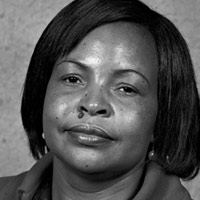
Maite Nkoana-Mashabane
Minister of International Relations
Tel: +27 21 464 3700
www.dfa.gov.za
Relatively unknown in foreign affairs circles, Maite Nkoana-Mashabane has some experience in the field, having served as high commissioner to Malaysia and India. Born in Ga-Makanyuane village in Limpopo, she became politically active in the 1980s, with involvement in the United Democratic Front, the Mass Democratic Movement and ANC underground structures.
She spent a year as an ANC MP before her first foreign posting in 1995 and returned to Limpopo 10 years later as MEC for local government and housing. After the ANC’s 2007 Polokwane conference she was taken on to the ANC international relations subcommittee, an indication that foreign affairs were in her future. She won a national award for best provincial housing minister, although there was some criticism about the quality of the houses delivered, and she was widely praised for leading a provincial task team that brought a 2008 cholera outbreak under control.
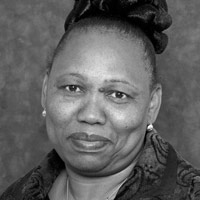
Angie Motshekga
Minister of Basic Education
Tel: +27 12 312 5501
www.education.gov.za
Angelina Matsie ‘Angie” Motshekga was one of the first leaders in Gauteng to align herself with Jacob Zuma before the 2007 Polokwane conference, and as a result she was elected to both the ANC’s national executive committee and its powerful national working committee. Her career in provincial politics has had its controversies. In 2003 the ANC asked why she had recommended that a female empowerment group, of which her husband — a former Gauteng premier — was the director, be given a stake in a pension management deal when she was social development MEC.
While education MEC, she stated that education was not a necessary requirement for leadership. Moshekga holds a BEd from the University of the North and an MEd from the University of the Witwatersrand. She taught at Soweto’s Orlando High and lectured at the Soweto College of Education and the University of the Witwatersrand. She was a convener for gender in the office of the president, and was elected a member of the Gauteng provincial legislature in 1999. She was elected president of the ANC Women’s League in 2008.
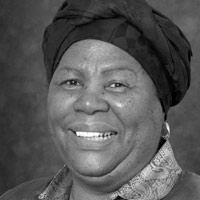
Naledi Pandor
Minister of Science and Technology
Tel: +27 12 843 6798
www.dst.gov.za
Arguably the best education minister since 1994, Naledi Pandor was moved out of the post when education was split into two ministries, basic and higher education. As education minister, her mantra had been quality improvements in education. She had concentrated on early childhood development and mass literacy, and was trying to fix shortcomings in teacher training. The granddaughter of the late great Professor ZK Matthews and the daughter of former safety and security minister Joe Matthews, Pandor received most of her early education in exile.
She acquired master’s degrees from the universities of London and Stellenbosch and lectured at the universities of Cape Town, Botswana and London. She was the ANC’s deputy chief whip, then moved on to chair the National Council of Province until appointed education minister in 2004. She has a reputation as an independent thinker, whose decisiveness and intolerance for slackness have earned her respect both locally and internationally.
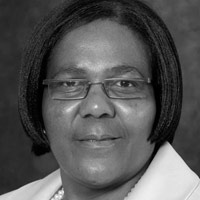
Dipuo Peters
Minister of Energy
Tel: +27 12 317 8000
www.dme.gov.za
Dipuo Peters was Northern Cape premier before her elevation to ministerial status. She had earlier been a controversial health MEC; in 2002 she lambasted health officials at Kimberley Hospital for giving an antiretroviral (ARV) drug to a raped baby. She insisted she was only acting according to government policy and demanded the hospital stop administering ARVs to rape survivors.
When the national government changed its policy, so did she, and as premier she launched a comprehensive HIV/Aids treatment programme. Peters holds a BA in social work from the University of the North and was an organiser for the South African Domestic Workers Union while head of the women’s department at the South African Youth Congress. In 1990 she was the ANC Youth League’s national secretary for women’s affairs. She was an MP from 1994 to 1997, moving to the provincial legislature before her appointment as premier.
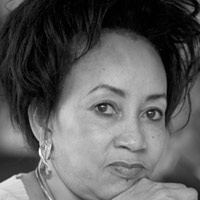
Lindiwe Sisulu
Minister of Defence and Military Veterans
Tel: +27 12 355 6101/+27 21 787 6070
www.dod.mil.za
Lindiwe Nonceba Sisulu is on her way up. Since the ANC conference at Polokwane in 2007 she has been catapulted into the inner circle surrounding Jacob Zuma and she played a major role in the strategy that ensured his election. The daughter of struggle stalwarts Walter and Albertina Sisulu, Lindiwe Sisulu left South Africa and joined Umkhonto weSizwe in 1977 after her release from detention under the Terrorism Act.
She earned BA degrees in education and history at the University of Swaziland in 1980 and lectured at the university, at a teacher training college and at a high school; she also worked as a journalist on The Times of Swaziland. In 1989 she earned an MA and an MPhil in history at the University of York and returned to South Africa the following year as personal assistant to Zuma, who was then the ANC’s head of intelligence. In 1996 she was appointed deputy minister of home affairs, and five years later minister of intelligence, leaving that post to assume the ministry of housing in 2004.
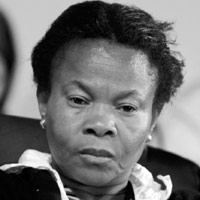
Susan Shabangu
Minister of Mineral Resources
Tel: +27 12 317 8000
www.dme.gov.za
Susan Shabangu was deputy minister of minerals and energy before moving to the deputy post at safety and security. Her new job takes her back to a department split in two, but this time as a minister. Born and educated in Soweto, Shabangu was assistant Transvaal secretary for the Federation of South African Women in 1980, the year she entered politics. She was a founder member of the Release Mandela Campaign and stayed active in that organisation until Madiba’s release in 1990.
In the mid-1980s she moved into the labour field, as organiser and administrator for the Amalgamated Black Workers’ Club. In the early 1990s, she was a member of the Congress of South African Trade Union’s national task team aimed at educating workers during the run-up to the first democratic elections, and she was on Cosatu’s list for Parliament in 1994, where she was active in committees dealing with transport, trade and industry and, naturally, labour.
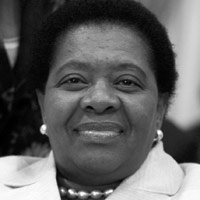
Buyelwa Sonjica
Minister of Water and Environmental Affairs
Tel: +27 12 336 7500
www.dwaf.gov.za
For Buyelwa Sonjica, her new post is a return: she was minister of water affairs and forestry until a Cabinet reshuffle in May 2006, when she took over the minerals and energy portfolio – just in time to take the blame for the country’s energy problems. She has had a range of government posts, including ANC whip for five years from 1994 and deputy minister of arts, culture, science and technology, from 2003 until she was moved to water affairs and forestry.
Trained as a teacher at Vista University, with a BA degree from Vista and BA honours from Rhodes University, she taught higher primary in the 1980s while involved in the United Democratic Front and the Mass Democratic Movement. She was an active member of the South African Democratic Teachers’ Union from its founding
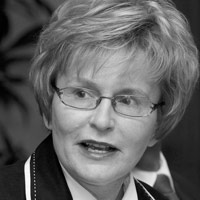
Helen Zille
Premier
Western Cape Provincial Government
Tel: +27 21 483 3302
www.capegateway.gov.za
Helen Zille began her career as a hard-hitting political journalist after obtaining a BA from the University of the Witwatersrand. The reporter who uncovered the fact that political activist Steve Biko was tortured to death in detention, she had a reputation for being fiercely anti-apartheid, tough and intelligent. Zille left journalism in the 1980s, worked through non-governmental organisations, and in the 1990s joined the Democratic Party. Her rise in politics has been slow but determined.
She was a successful education MEC and, subsequently, Cape Town mayor, holding together a fragile coalition of smaller parties who were lured to the ANC side when the going got tough; under her aegis, the metro was known as the best run in the country, with, inter alia, crime reduced by 90% in the city centre. But it was not an easy stint, with the provincial ANC trying various methods to unseat her. The Democratic Alliance won the Western Cape in April 2009 but her tenure as premier might be brief if the ANC goes through with its stated intention to disband the provinces.